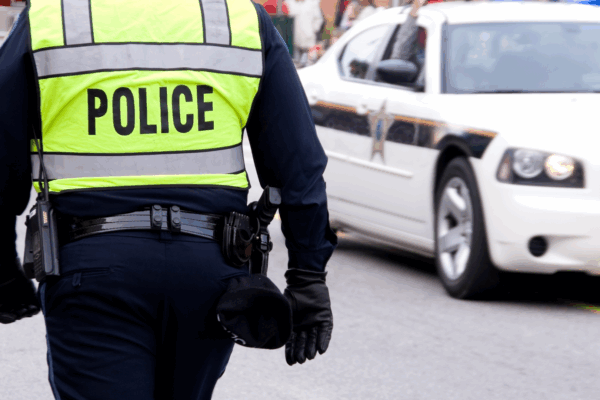Can I record the police in public spaces in Massachusetts?
Yes. In Massachusetts, you have a First Amendment right to photograph and record the police carrying out their duties in public spaces. You can either do this openly, with your phone or recording device visible to those being recorded,[1] or even secretly, with the device not visible.[2]
What qualifies as a public space for these purposes?
- For the purposes of this right, a “public space” includes at least traditional public forums such as public parks, streets, and sidewalks, as well as traffic stop encounters, and other “inescapably” public spaces such as a hallway in a public building soon after a public meeting is held.[3] Public spaces may also include additional locations. It has not been decided whether, for the purposes of this right, public spaces include the lobby of a police station or government offices.
Are there any limits on how and when I can record police in these public spaces?
- Yes. You should not directly interfere with police officers performing their duties. For example, you should not stand between an officer and the person they are seeking to arrest or detain. If you interfere with law enforcement operations, you may be arrested.
What should I do if I am stopped or detained by police for taking photographs or videos?
- Always remain calm and never physically resist a police officer.
- If you are stopped, ask the officer if you are free to leave. If the answer is yes, calmly walk away.
- If you are detained, you might ask the officer what crime you are suspected of committing, and remind the officer that photographing or secretly recording the police is your right under the First Amendment per Glik v. Cunniffe and Martin v. Rollins, and does not constitute reasonable suspicion of criminal activity.
- Remember that anything you say to the police can be used against you.
- If you are arrested, remember your right to remain silent and to call an attorney to advise you.
- See more information about your rights regarding interactions with the police here.
What should I do if I think my rights have been violated?
- Write down relevant facts, including names of any officers involved, their badge numbers and patrol car numbers, the agency they work for, and contact information for any witnesses.
- Take photographs of any injuries that result from any interaction with police officers.
- See more information here about what to do if you believe the police have engaged in misconduct against you.
Prepared August 2023
[1] The right to openly record police in public spaces, including what they are saying, was established in a landmark case brought by the ACLU of Massachusetts (ACLUM), Glik v. Cunniffe, 655 F.3d 78 (1st Cir. 2011). In 2010, Mr. Glik sued three police officers and the City of Boston for violating his free speech rights, after the police arrested him and charged him with illegal wiretapping, aiding the escape of a prisoner, and disturbing the peace — all for merely holding up his cell phone and openly recording Boston police officers as they punched another man on Boston Common in October 2007. The Court ruled that Glik’s recording was a form of constitutionally protected free speech.
[2] This right was established in a case brought by ACLUM, Martin v. Rollins, 982 F.3d 813, 827 (1st Cir. 2020), which was consolidated with another case, Project Veritas Action Fund v. Rollins. There, the First Circuit said the Massachusetts Wiretap Statute’s criminalization of the secret recording of police officers in public spaces violated the First Amendment.
[3] Id. at 827. To record during a public meeting, the Open Meeting Law requires you first notify the Chair. G.L. c. 30A, § 20(f).
Documents
Stay Informed
Sign up to be the first to hear about how to take action.
By completing this form, I agree to receive occasional emails per the terms of the ACLU’s privacy statement.
By completing this form, I agree to receive occasional emails per the terms of the ACLU’s privacy statement.


